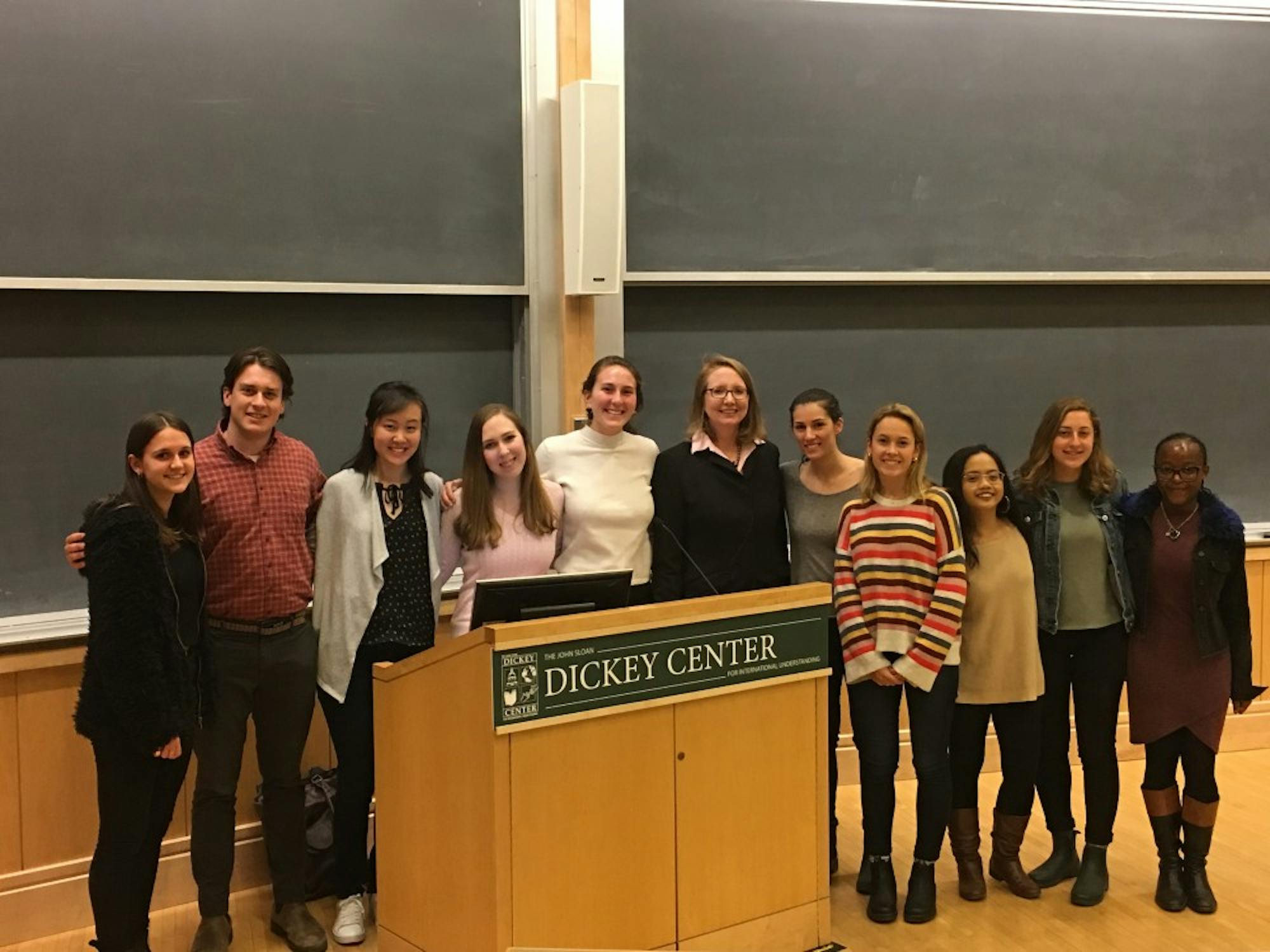Last week, government professor Deborah Brooks and a group of Dartmouth students launched the International Menstrual Health Entrepreneurship Roundup, a free website that provides resources to individual entrepreneurs and organizations that aim to address global menstrual health problems. As a project under the John Sloan Dickey Center for International Understanding’s Dartmouth Global Girls Forward Lab, an undergraduate research team that gives students the potential to create projects that help forward the interests of girls and women worldwide, IMHER focuses on raising awareness of global menstrual health and helping people in the field tackle related problems.
Brooks said she was inspired to launch this project because of her work with Grace Ningejeje, a member of the 2017 Young African Leaders Initiative who is passionate about providing high-quality, low-cost menstrual pads to people who need them in Burundi.
Brooks said that the website is helpful for small organizations that work to tackle global menstrual health problems but lack the knowledge on how to approach them.
“[The student research assistants are] like an outsourced research team for super-small organizations that don’t have on-board researchers,” Brooks said.
According to Brooks, after students conduct their own individual research, she compiles it into a database that is ultimately displayed on the website.
“There [are] a lot of pieces to IMHER,” Brooks said. “[Each student is] doing their own piece separately — often in their dorm rooms — and I’m coordinating it and putting it together.”
Jennifer West ’20, a research assistant who became involved with IMHER at the project’s inception after taking a class with Brooks, said she focused her research on studies examining the impact of access to sanitary products on girls and women. She said she hopes that the website can provide a network for people who work on providing menstrual products to women in developing countries.
“I hope that the website will be really helpful for people who are either starting out in the project of making their own sanitary products or looking for more information or trying to connect with other people who have successfully done that,” West said. “I think this will be a great guiding tool as to how other organizations and activists have been able to successfully start their own business or non-profit organizations.”
Jennifer Peterlin ’20, another research assistant on the team, said she concentrated on finding educational resources for global menstrual health and helping with Airtable, the database utilized by the team. She said that a challenge that the team encountered when creating IMHER was finding detailed information about organizations that provide educational resources on menstrual health.
“A lot of the time, the websites [of those organizations] aren’t specific enough,” Peterlin said. “We just physically don’t have enough information to talk about them in [complete terms] and that’s the hardest thing: It exists, but we need to look more.”
Peterlin added that communication with team members and advising from Brooks were crucial in addressing the challenges that come up in the project.
“Brooks is obviously our advisor throughout all of this, but she gave us the freedom to do our research,” she said. “We weren’t held down to where we could be researching or what type of products we could be finding — it was kind of in our own hands to decide how much work and how much research [we wanted] to [do].”
The website currently features content that describes menstrual health, the debates regarding the issue, a database that gathers information on menstrual health products; research studies; and a blog that allows the general public to read about global menstrual health. Brooks said creating more posts for the blog is one of the team’s future plans for IMHER.
Brooks acknowledged that measuring IMHER’s success would be difficult, as simply tracking page views does not provide an accurate estimate of the website’s impact. However, she mentioned that she is confident in the value of IMHER after personally reaching out to entrepreneurs in the field and seeing the work that the IMHER researchers have done.
“The website is helping individuals, small organizations and entrepreneurs connect with one another and do their work more efficiently, and they are in turn, helping many, many girls and women menstruators in their own community,” Brooks said. “And then our own students are learning how to do research — learning how to think outside of the box with reference to research. So there are a lot of people winning from this.”




